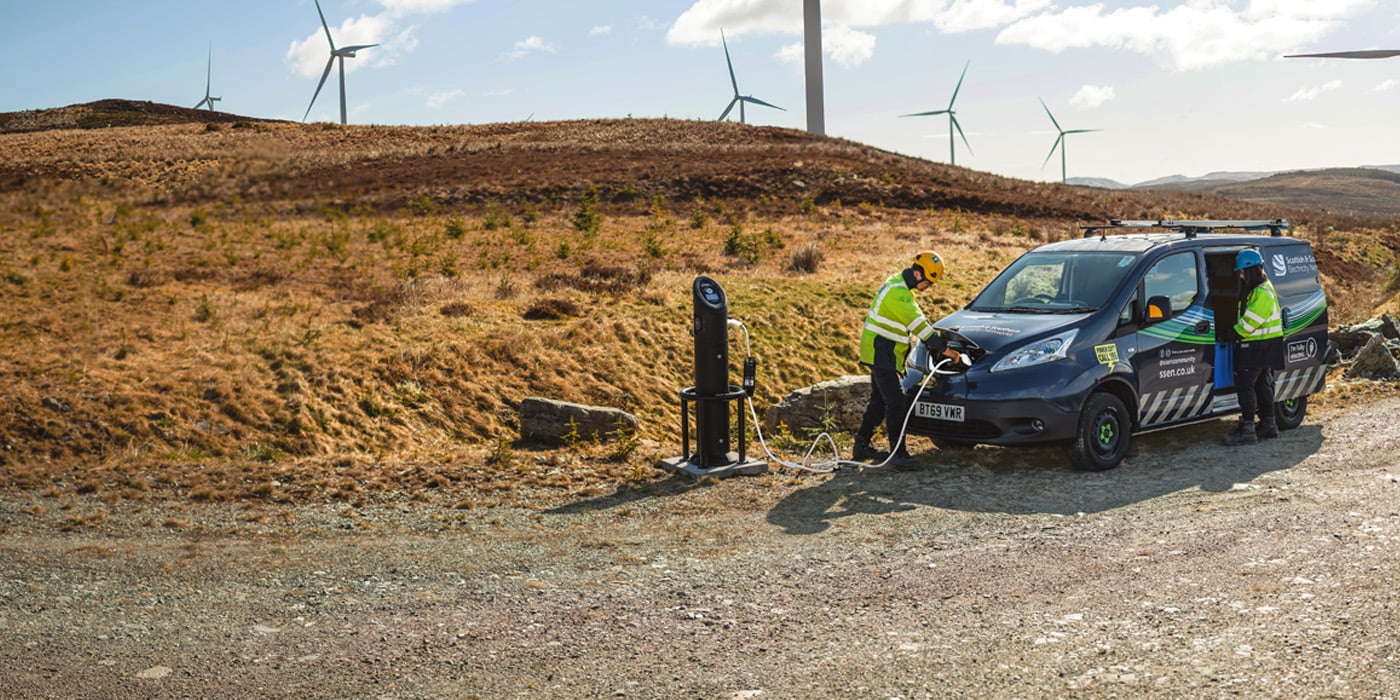SSEN is the distribution network operator for the Isle of Wight and responsible for delivering a safe, secure and reliable supply of electricity to customers on the Isle. This includes working closely with the local council and other stakeholders to ensure new electrical assets, such as charge points, are built at the sites where they are needed, and the network is able to service them.
Local residents are already switching to electric vehicles (EVs) and the charge points that are needed sometimes require upgrades to the network. The Isle of Wight also sees large numbers of seasonal visitors and SSEN has been working to understand the impact of their electricity demand, as they also adopt EVs and use them to visit their favourite locations.
SSEN’s E-Tourism project has used locations on the Isle of Wight, such as the famous Needles, as case studies to identify the challenges and solutions for remote areas. These destinations can see large seasonal visitor numbers but are frequently located at the ‘grid edge’, where there has traditionally been low electrical demand. For these sites, the E-Tourism project has investigated innovative solutions as an alternative to network reinforcement which may be costly and time consuming. E-Tourism considered:
- smart charging
- local generation
- energy storage
- combined generation and storage
- novel EV charging options such as valet and ticketed charging
Smart charging can offer a cost-effective approach for sites where vehicles are parked for some time. Destinations where visitors typically spend a shorter amount of time, such as the Needles, could consider combined energy generation and storage, or new services such as ‘park, charge and ride’, allowing drivers to leave their vehicles at a charging site and taking public transport to their destination.
Simon O’Loughlin, Innovation Project Manager at SSEN said:
“We anticipate the numbers of EVs on our roads will increase twenty-fold by 2030, so we are working hard to identify the timings and locations for those charging requirements and how our network can best support them. Reinforcing the network is not necessarily the most cost-effective option for demand that fluctuates with the seasons. Our E-Tourism project offers a useful toolkit for any local authorities or communities that are planning their charging infrastructure and we hope will help deliver a net zero transition cost effectively, right across the UK.”
SSEN works with trusted partners in this area, such as Energy Saving Trust which offers support to local authorities in developing EV charging infrastructure through the Local Government Support Programme (LGSP), funded by the Department for Transport. The LGSP supports a range of measures, including assisting EV strategy development and infrastructure procurement, as well as engaging with communities, businesses and visitors to educate them on the positive impacts of sustainable transport.
Nick Harvey, Senior Programme Manager for Energy Saving Trust said:
The decarbonisation of transport is a key part of the UK’s transition to net zero, and we are working to support areas to meet local carbon reduction targets. As the date to phase out the sale of new petrol and diesel cars approaches in 2030, supporting the uptake we’ve seen in the sale of electric vehicles with convenient, reliable and affordable charging infrastructure is crucial. Areas that cater for different groups, such as residents, businesses and visitors, need tailored solutions to provide the right charging solutions in the right locations alongside plans to fully engage with the community on the benefits of supporting sustainable travel.”
Click here to read the full report by Element Energy.
E-Tourism is an NIA-funded project and has now concluded.
